Cheque dishonor means wherein the bank declines to pay (‘honour’) the recipient of the cheque the full amount of the cheque. According to Section 138 of the Negotiable Instruments Act, 1881 (“NI Act”), if a person draws a cheque on a bank account he or she maintained for the payment of any amount of money to another person and the bank returns the cheque as unpaid because the account balance is either insufficient to honour the cheque or the amount written on the cheque exceeds the amount agreed to be paid from that account by an agreement made with the bank, then such person shall be deemed to have committed an offence. A cheque may be dishonoured in the following circumstances:
- Insufficient funds;
- Amount in figure and word differs;
- Cheque out of date/post-dated Cheque;
- Drawer’s Signature Differs;
- Payment stopped by drawer;
- Crossed Cheque; to be presented through a Bank;
- Payee’s endorsement required;
- Effects not cleared, may be presented again;
- Payee’s endorsement irregular/Bank’s confirmation required;
- Alterations in date/figures/words require drawer’s full signature;
- Clearing stamp required/requires cancellation/endorsement of the Bank;
- Addition to Bank discharge should be authenticated;
- Cheque crossed Account Payee only;
- Collecting Bank’s Discharge is irregular or is required;
- Mutilated Cheque;
- Account Closed;
If a cheque is returned unpaid by the bank thereby leading to dishonour of cheque by the drawer, the recipient of the cheque may bring a case against the drawer. However, in accordance with Section 138 of the NI Act , the Recipient must first meet the requirements listed below in order to file the lawsuit:
Presenting the cheque before the bank: The cheque has been handed in to the bank within six months of the day it was drawn or during the time when it was still valid.
Obtaining the Dishonour Slip: If the cheque is dishonoured after being presented to the bank for any reason, the bank must provide a Dishonour Slip that details the cause for such dishonour. The Slip must be picked up by the Recipient from the Bank within 30 days of such dishonour.
Legal Notice: After receiving the bank’s Dishonour Slip, the recipient of the cheque must send a legal notice by registered mail to the drawer of the cheque demanding payment within 30 days of receiving such notice. The NI Act allows the Recipient of the Cheque to launch a criminal case against the drawer of the Cheque if the drawer fails to pay the Recipient within 30 days of receiving such notice.
The notice should specify the date when the sum would need to be paid to the payee i.e. within 30 days of the drawer receiving the notice. According to Section 138 of the NI Act, the recipient will have the right to pursue legal action against the defaulter if the drawer doesn’t make a new payment within 30 days of getting the notice, at which point a cause of action would exist.
Within one month after receiving the acknowledgement slip of such legal notice, the recipient may file a complaint registered suit with the magistrate’s court.
The penalty for this offence is one (1) year of imprisonment or/and a fine up to three times the amount of the cheque. It is also important to note that separate cases must be filed for each dishonoured cheque.
Appeal
According to Section 138 of the NI Act, any party who feels aggrieved may choose to appeal the lower court’s decision by following the steps listed below:
- Before filing an appeal, 50% of the fine (given by the lower court) must be deposited.
- A 60-day window has been set up for the filing of an appeal against the session judge’s decision before the High Court Division of the Supreme Court of Bangladesh.
- A 60-day window has been set up for the filing of an appeal against the decision of an additional session judge before the High Court Division of the Supreme Court of Bangladesh.
- A 30-day window has been set up for the filing of an appeal against the decision of joint session judge before the High Court Division of the Supreme Court of Bangladesh.
In addition to the complaint filed under the Negotiable Instrument Act of 1881, the recipient may also file a lawsuit under the Code of Civil Procedure of 1908 for recovery, and he is not prohibited from doing so because both remedies may be available at the same time because a civil lawsuit cannot stop a criminal investigation.
However, if the drawer fails to arrange the payment of the cheque money within the allotted time, such act may constitute an offence of cheating, which is punishable under Section 420 of the Penal Code of Bangladesh. The recipient may also bring a lawsuit under Section 420 for cheating under the Penal Code, 1860.
Law for Nations has represented numerous NI Act case/ Cheque Dishonour case successfully.
